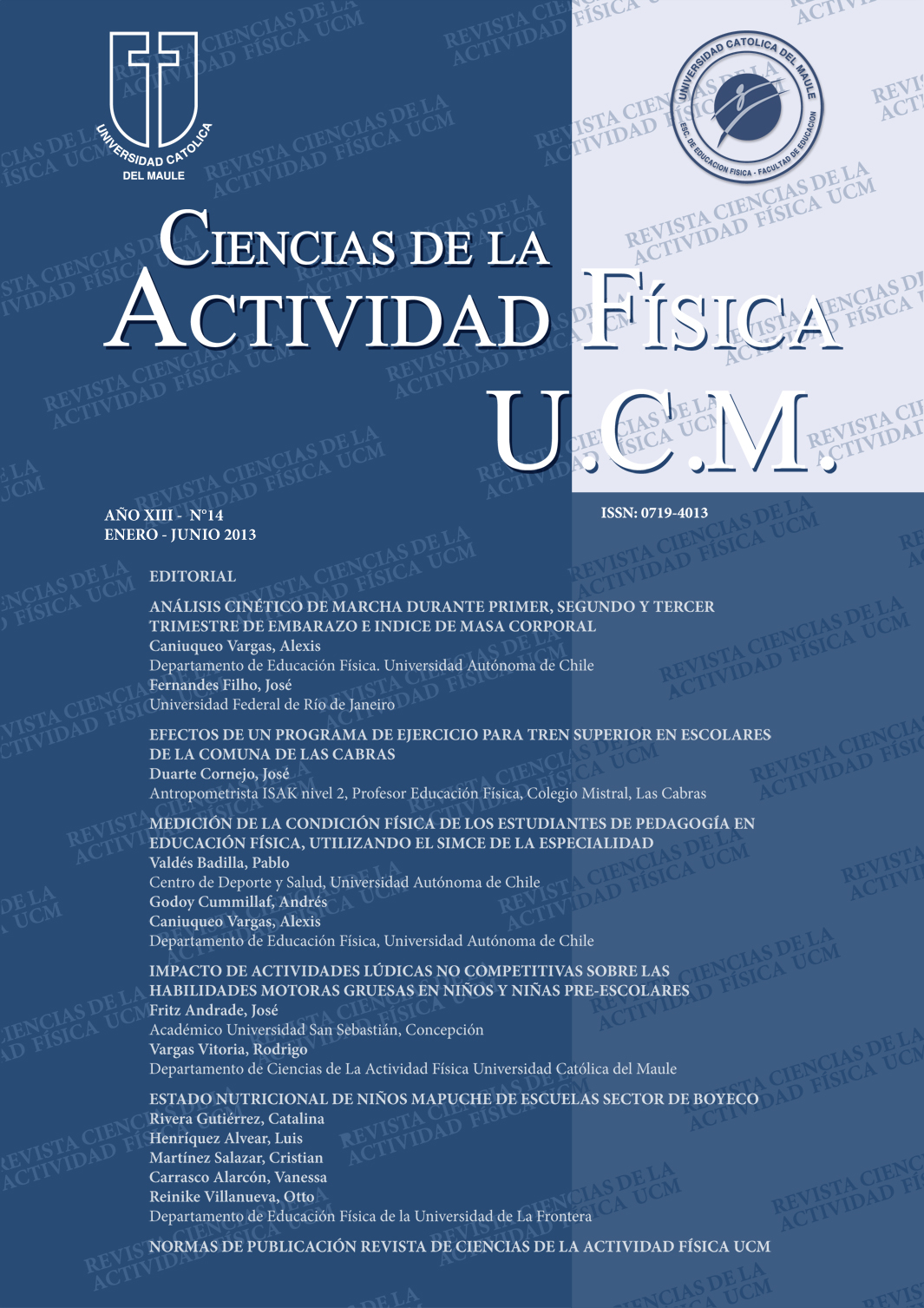Impacto de Actividades Lúdicas No Competitivas sobre las Habilidades Motoras Gruesas en Niños y Niñas Pre escolares
##plugins.themes.bootstrap3.article.main##
Resumen
Este estudio se centra en el impacto de las actividades lúdicas no competitivas de las habilidades gruesas en niños(as) prebásico. Se consideró una metodología lúdica con carácter no competitivo y la aplicación de un pre y post test, de modo de registrar y analizar el impacto de esta intervención. Tanto el grupo control como el experimental, avalan una práctica sistemática y dirigida de actividades físicas. El Grupo Control presenta un valor de 99,2 (cociente motor), al inicio del proceso, y asciende a 107,0 al finalizar éste. De igual manera, el Grupo Experimental incrementó
desde el valor inicial de 89,1 (cociente motor), a un puntaje de 112 (cociente motor). Se sistematiza la intervención motriz para atender y organizar las tareas en el ámbito del desarrollo motor, con el fin de mejorar la intervención docente y favorecer la participación y la praxis del alumnado en las sesiones de Educación Física.


